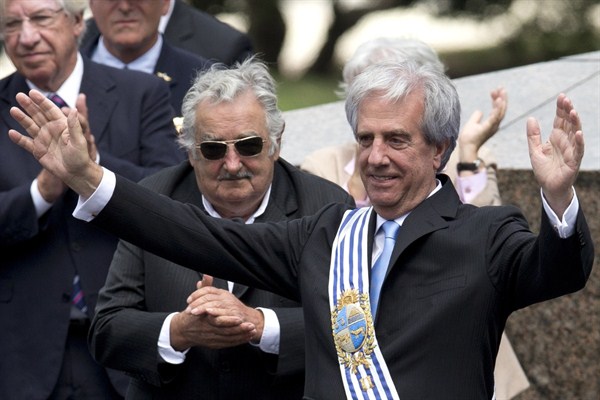In a region wracked by drug-related crimes, Uruguay stood out in 2013 when it became the first country in Latin America, and the world, to legalize the growth and sale of marijuana. Critics argued that the move would open the floodgates to increased consumption and abuse, but then-President Jose “Pepe” Mujica argued that the measure would quell drug trafficking in a country where one-third of prison inmates serve time on narcotics-related charges. The decision, while unprecedented, is consistent with Uruguay’s legacy of socially progressive policies; the country legalized abortion in 2012, was among the first in Latin America to establish a welfare state guaranteeing free public education and has been a leader in women’s rights. The country, otherwise known for its soccer superstars, gained international visibility as a beacon of progressive ideals.
For Uruguayans, the global attention was an opportunity to show that, despite being a nation of only 3 million inhabitants and the second smallest in South America, their country is more than just a hub for soccer talent. Though the world might perceive Uruguay as parochial, Uruguayans see their nation as a pioneer in correcting course on a range of policies that, they believe, have failed citizens in neighboring countries. In the hopes of serving as an example for progressive movements in the region and beyond, Uruguay has undertaken bold social and economic initiatives that have been applauded worldwide in recent years.
In 2013, The Economist called Uruguay the “country of the year,” thanks to legislation legalizing same-sex marriage and abortion, issues that many other countries have struggled to cope with. That same year, Uruguay passed its law legalizing and regulating the production and consumption of cannabis, in an attempt to halt more serious crimes that stem from drug trafficking across the Americas.

